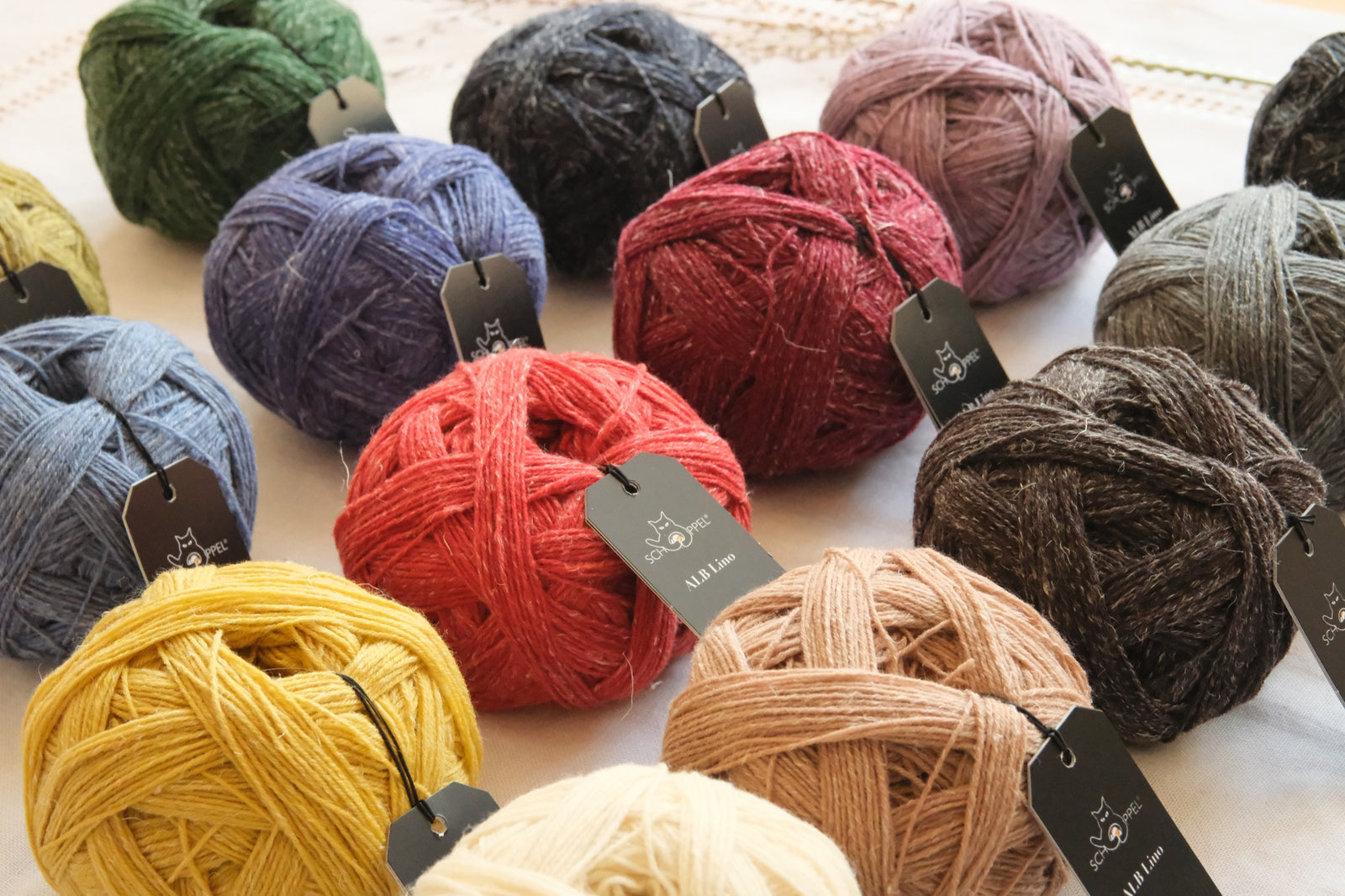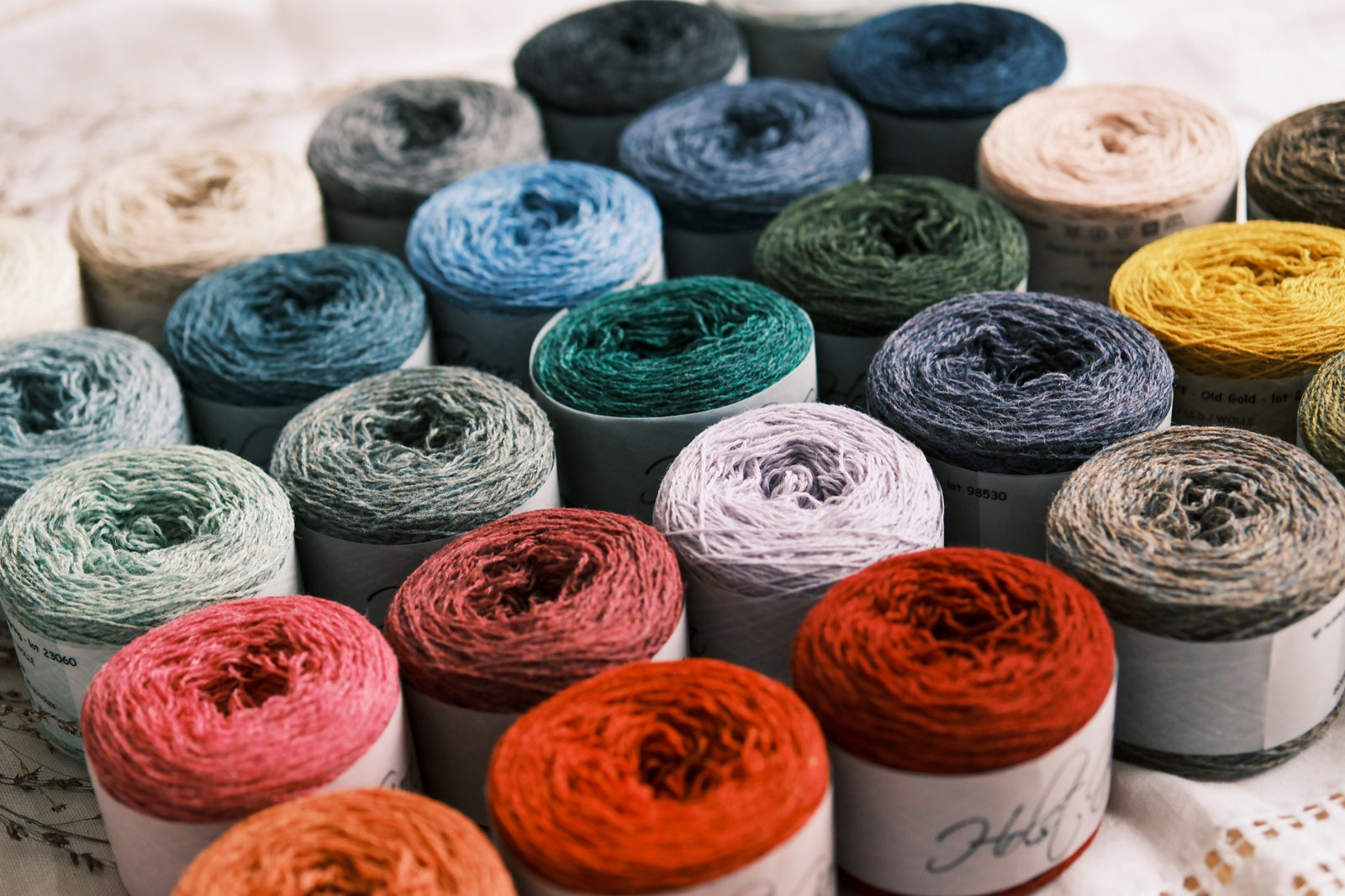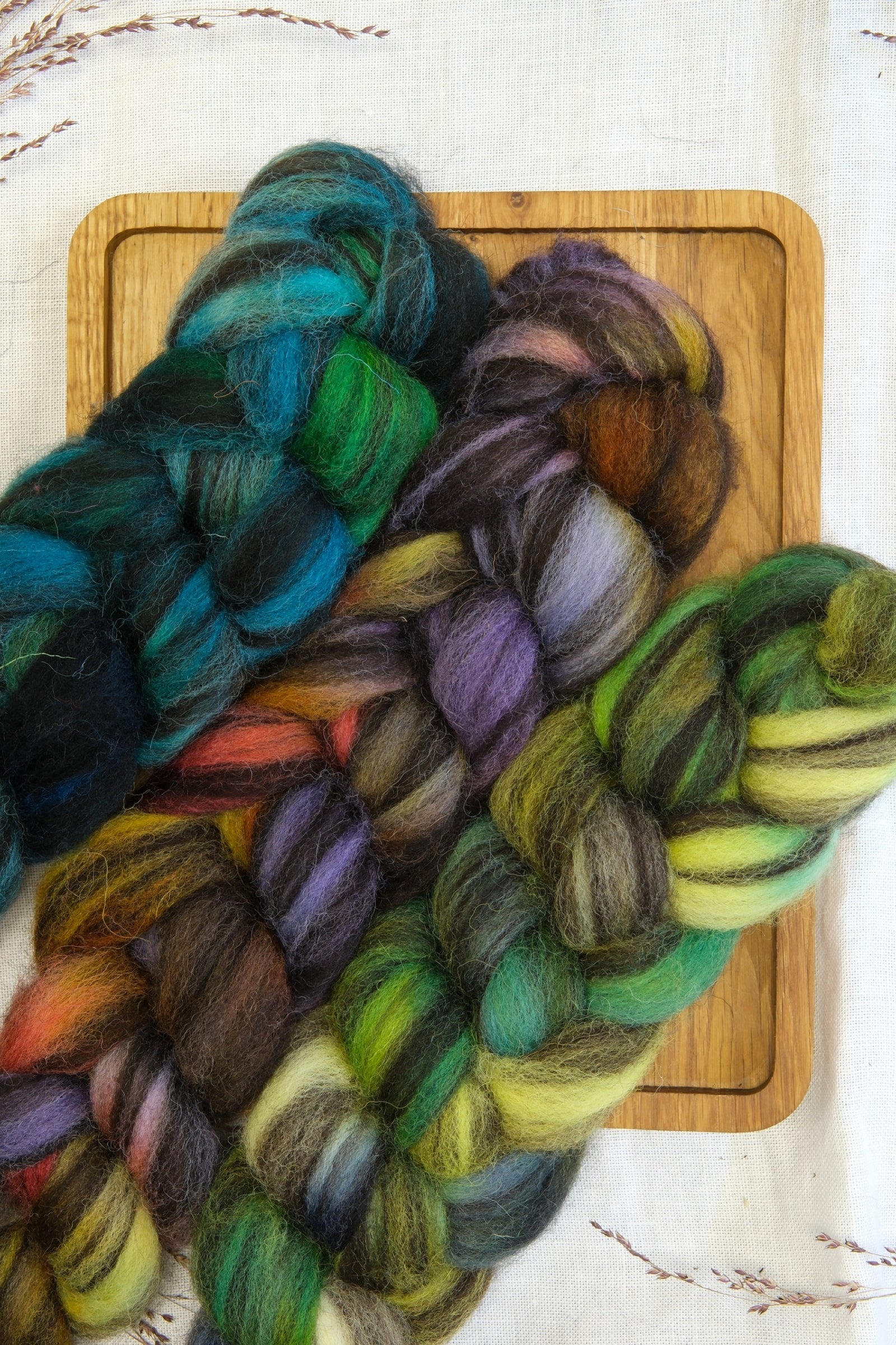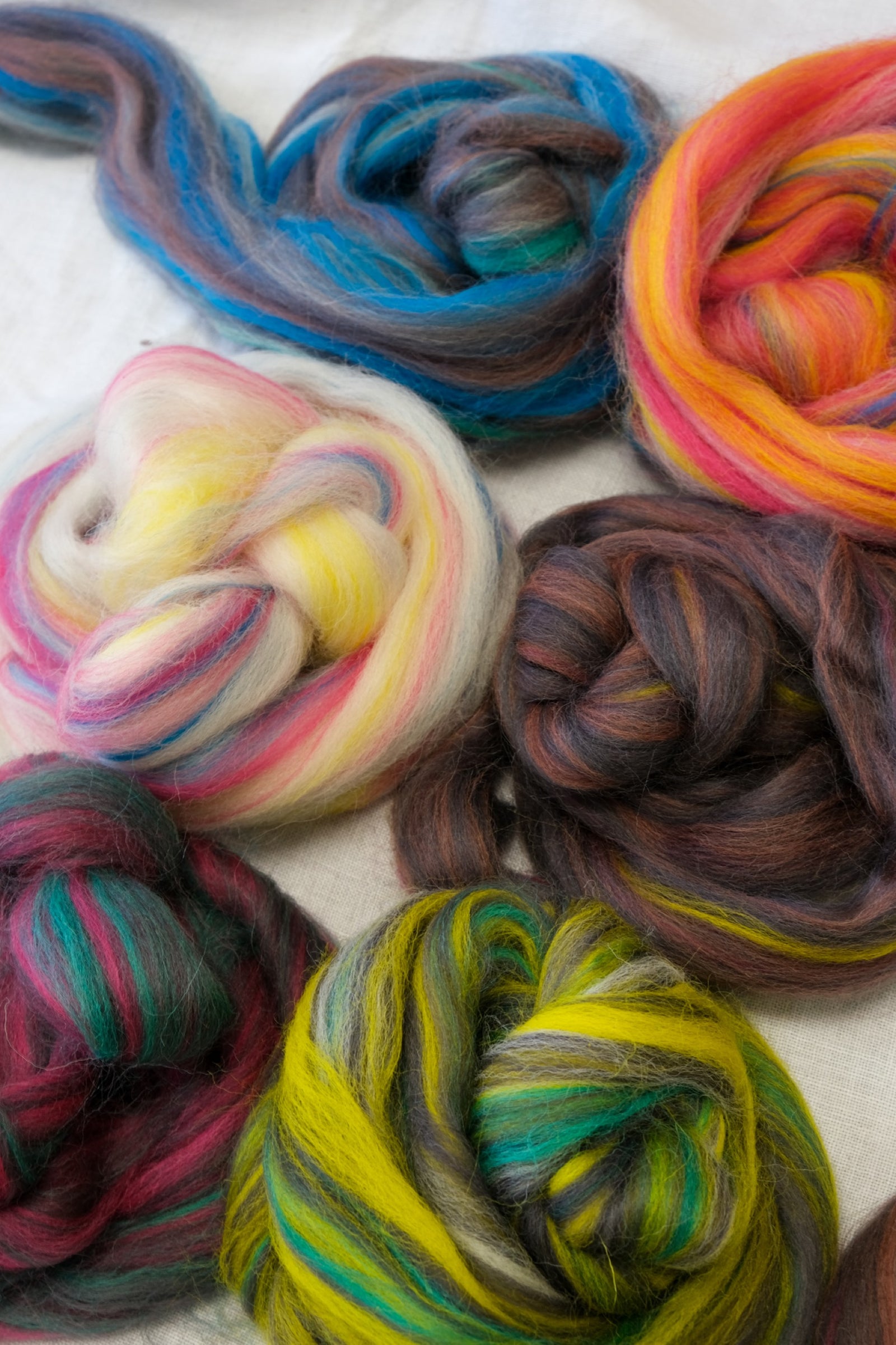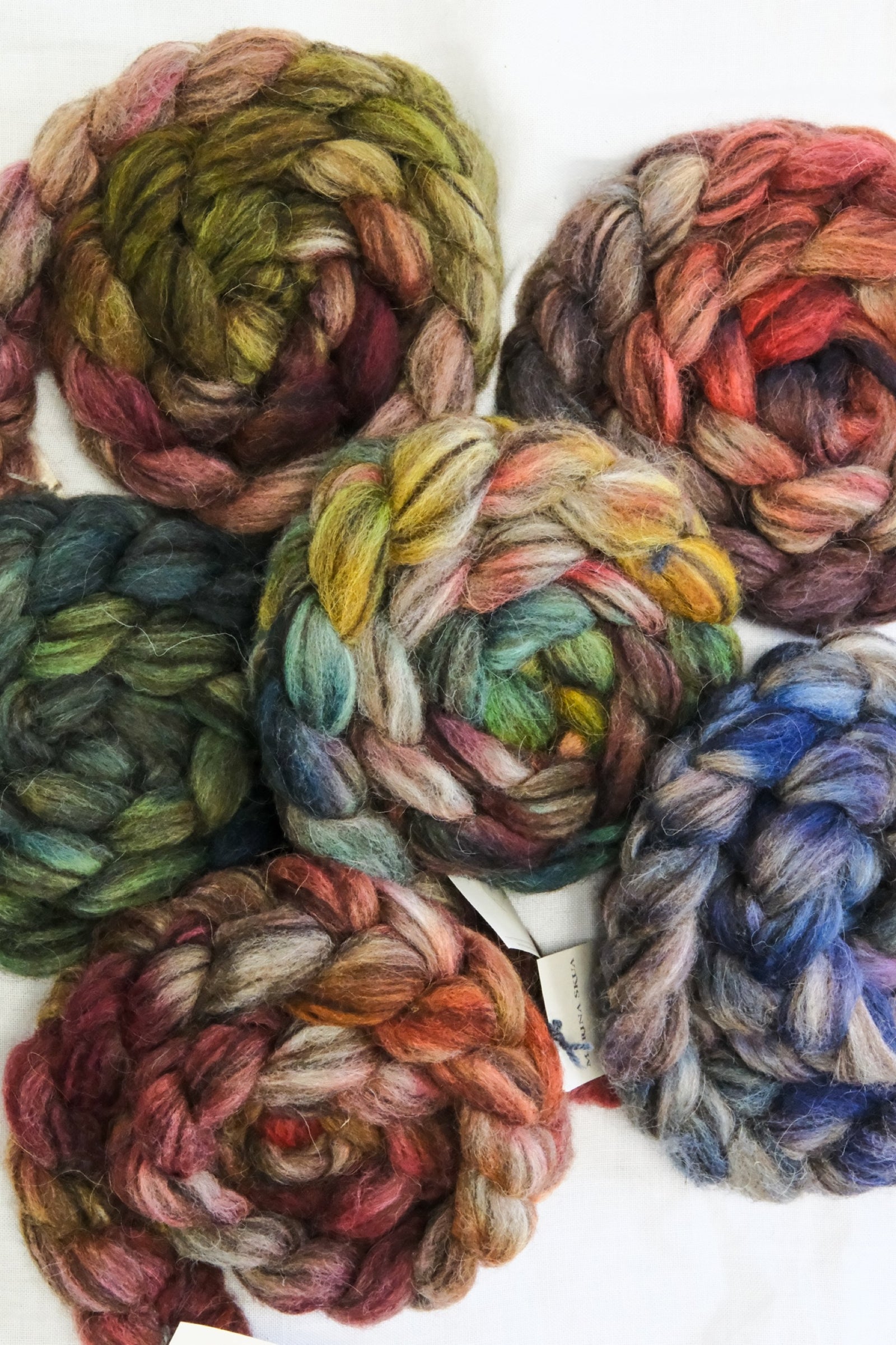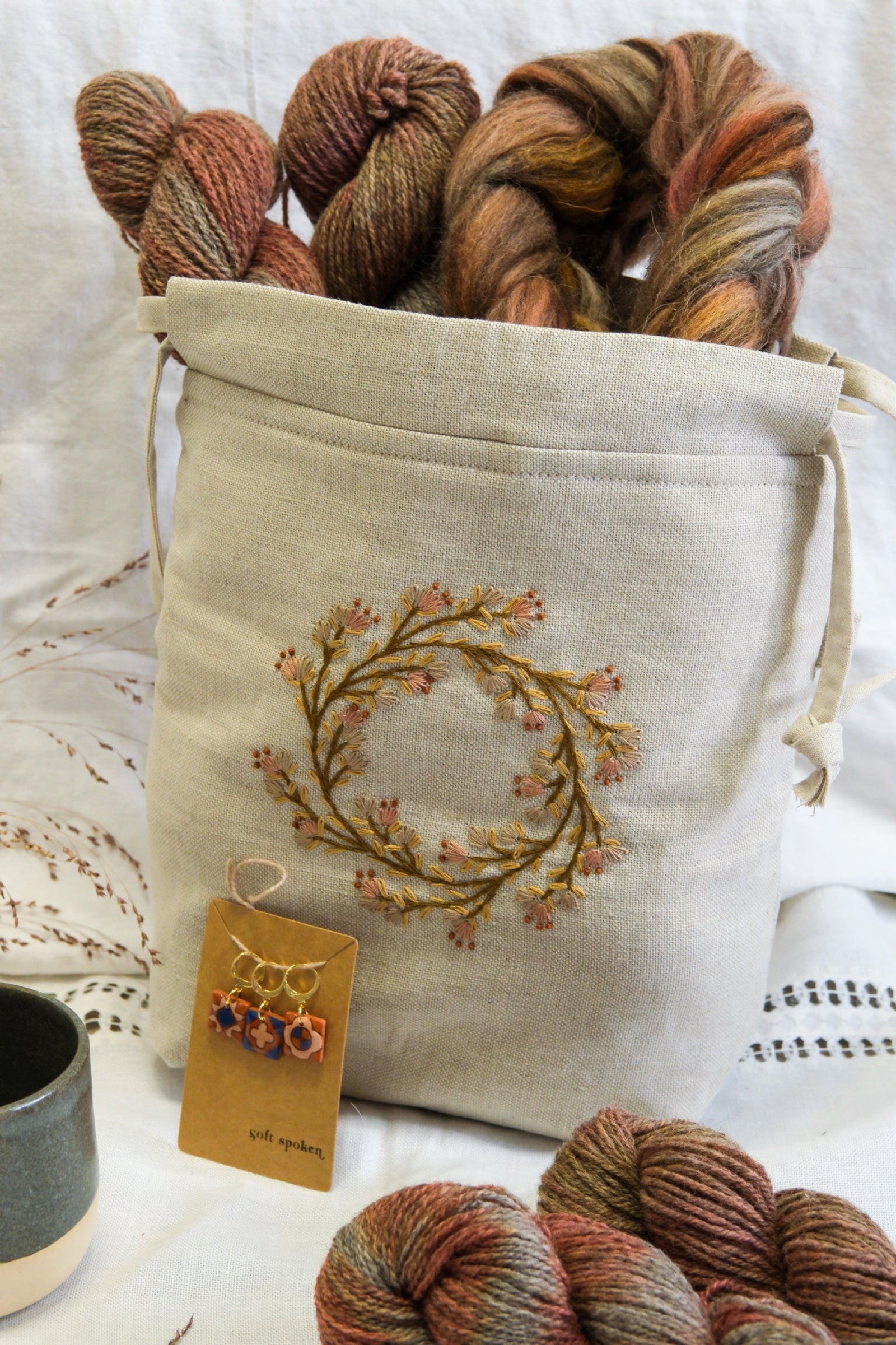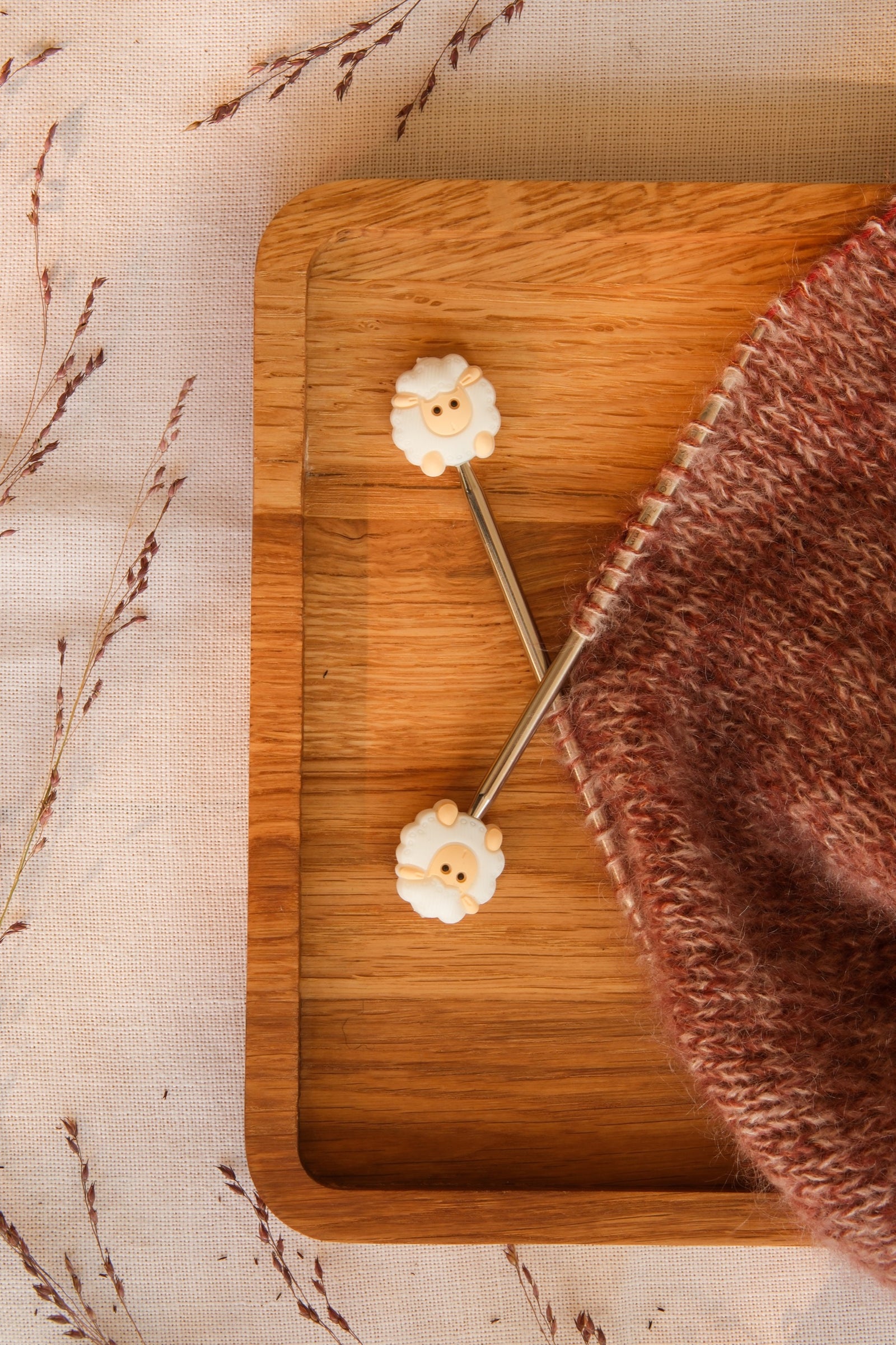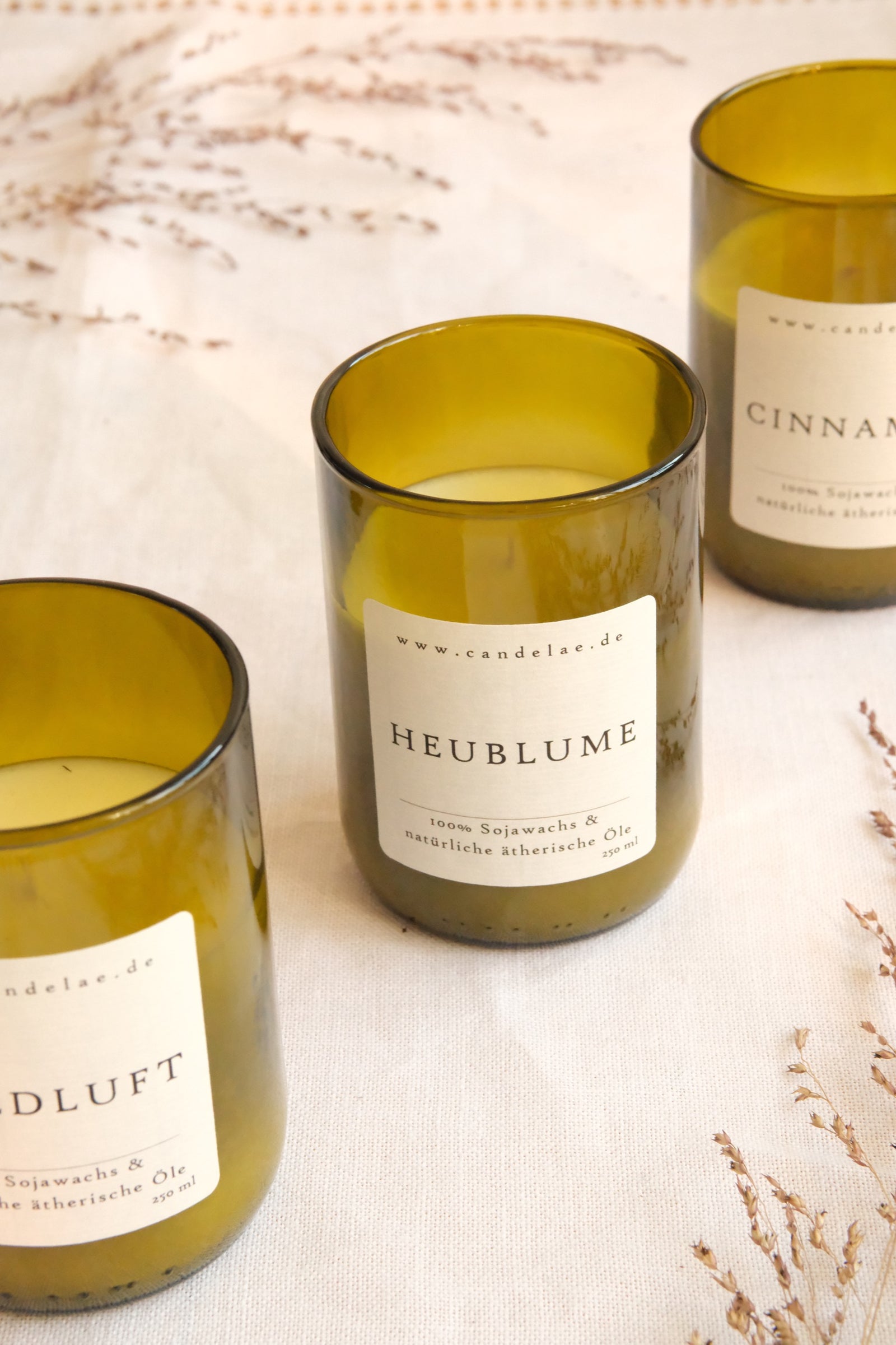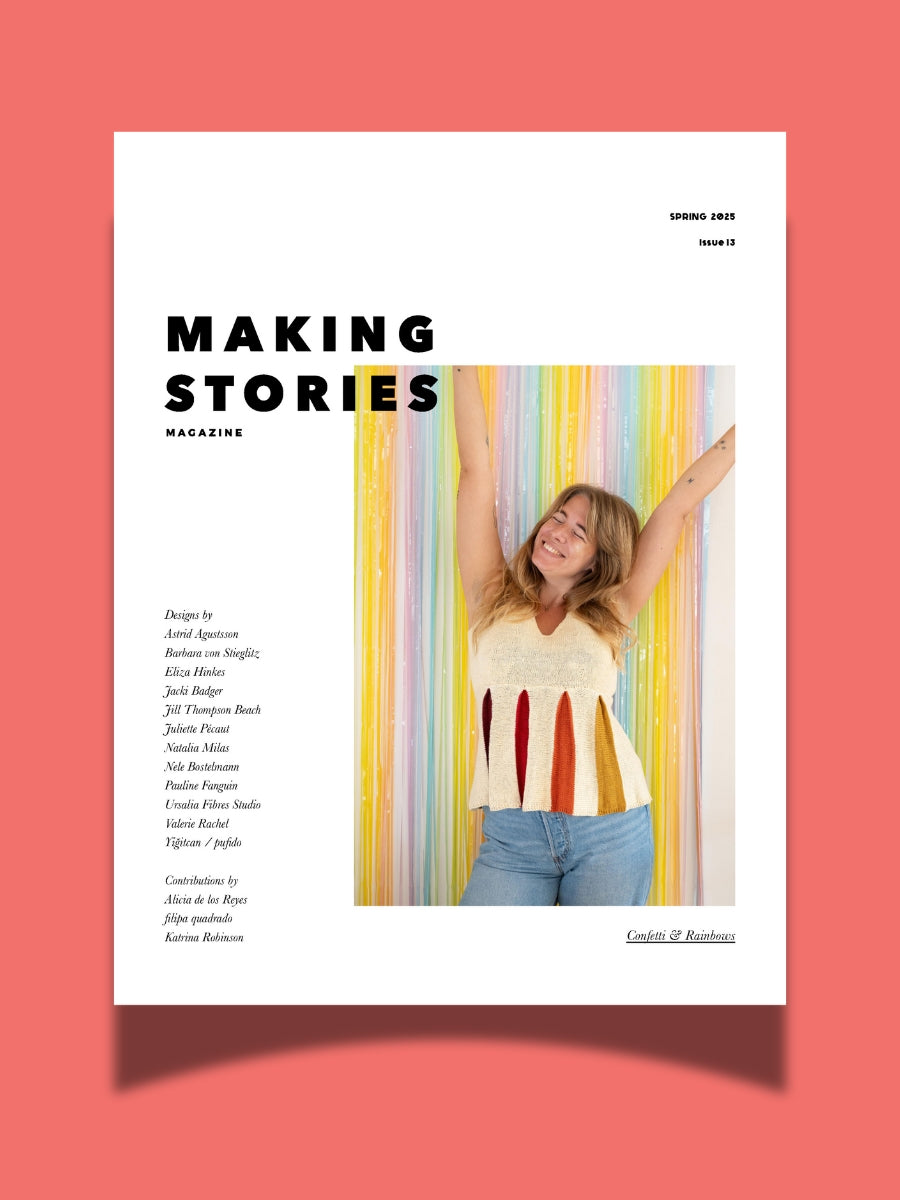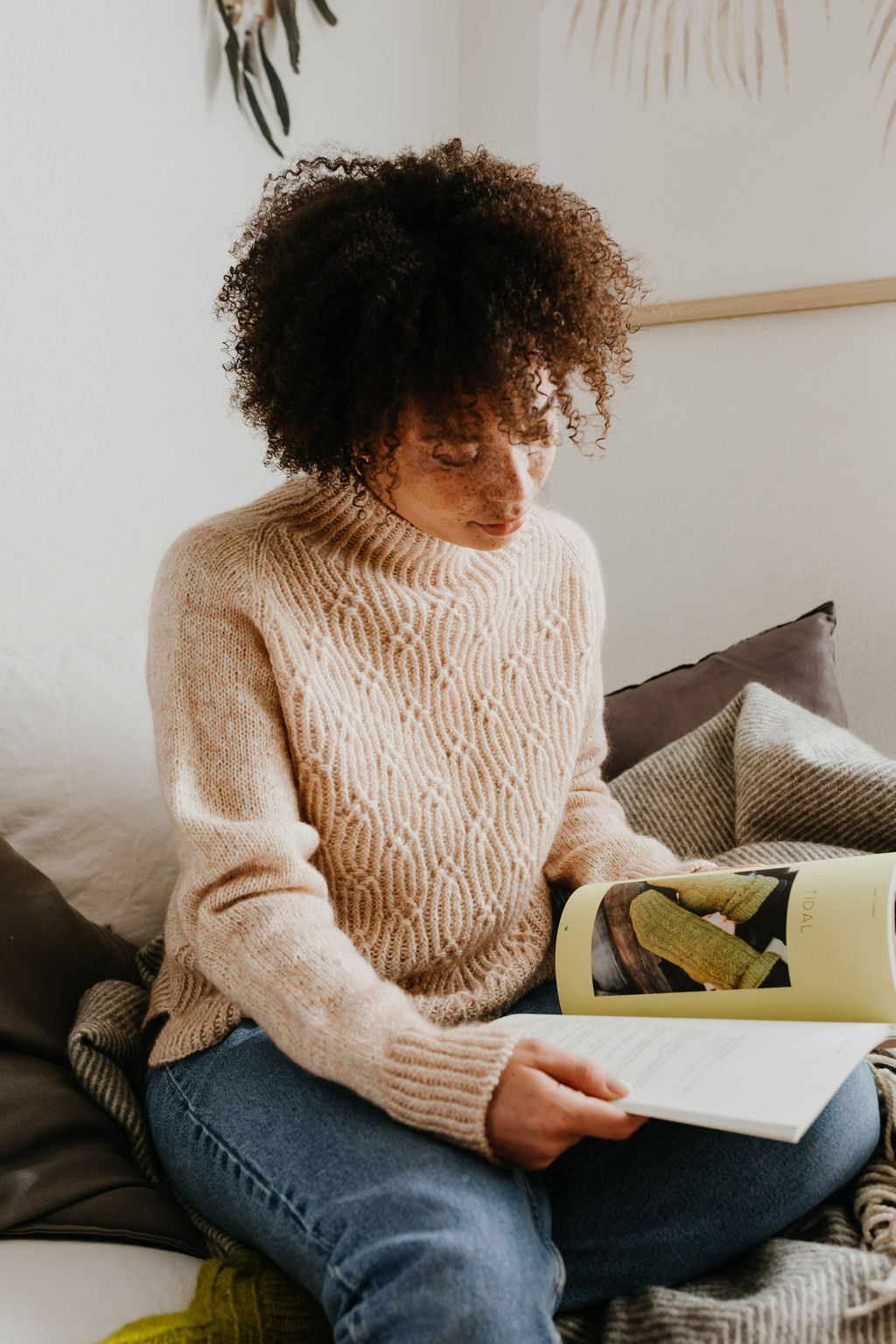As of April 1, Making Stories is closed. Thank you for your support all these years!
As of April 1, Making Stories is closed. Thank you for your support all these years!
Spinning Fiber
Notions & Gifts
Books, Magazines & Patterns
About Us
We're here to help you stitch sustainability into every aspect of your making.
With our carefully curated selection of non-superwash, plastic-free yarns and notions, we have everything you need to get started on your next project - and the one after that.
Here's to a wardrobe of knits we love and want to wear for years to come!
We're here to help you stitch sustainability into every aspect of your making.
With our carefully curated selection of non-superwash, plastic-free yarns and notions, we have everything you need to get started on your next project - and the one after that.
Here's to a wardrobe of knits we love and want to wear for years to come!
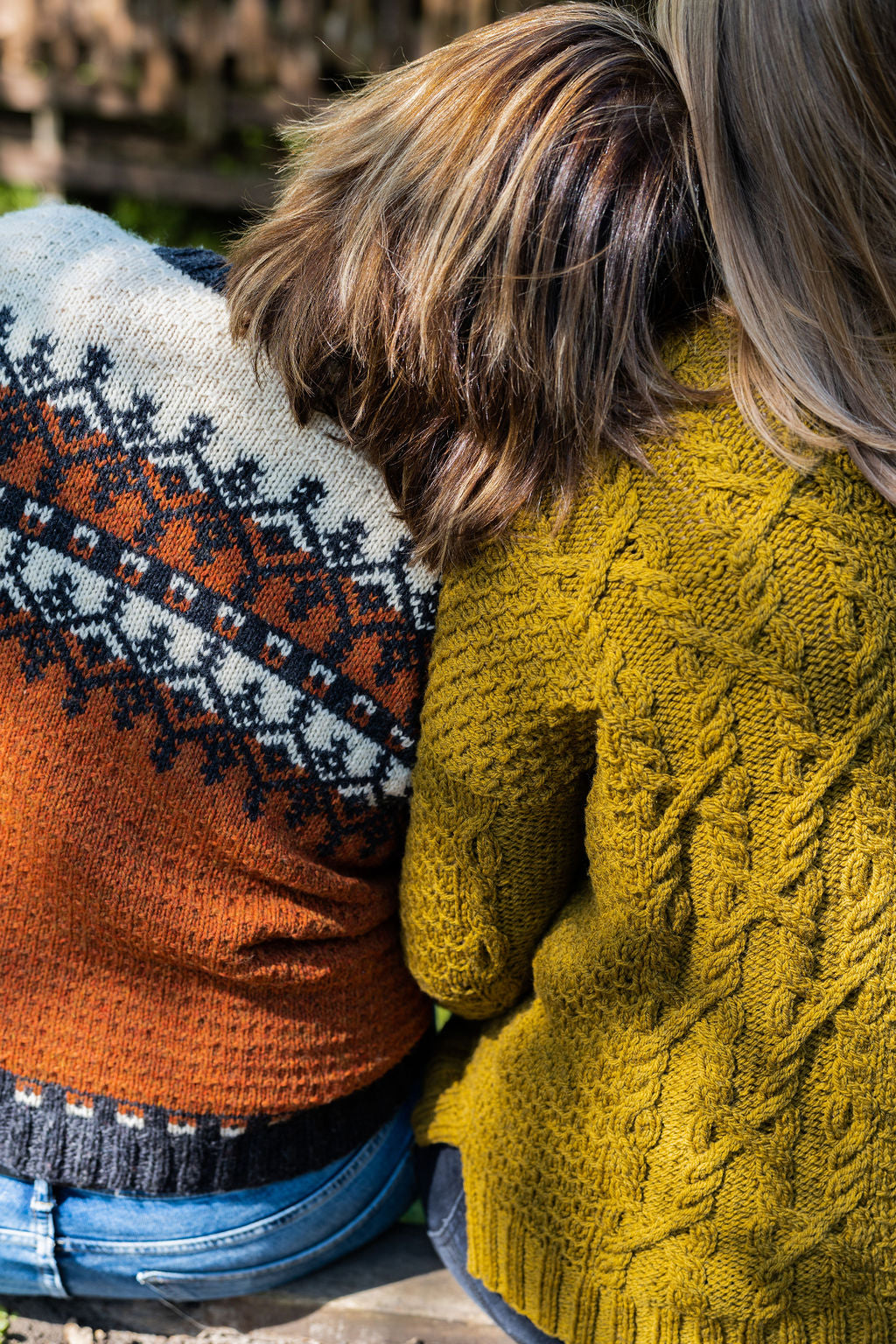
Our Sustainability Pledge

Our Blog
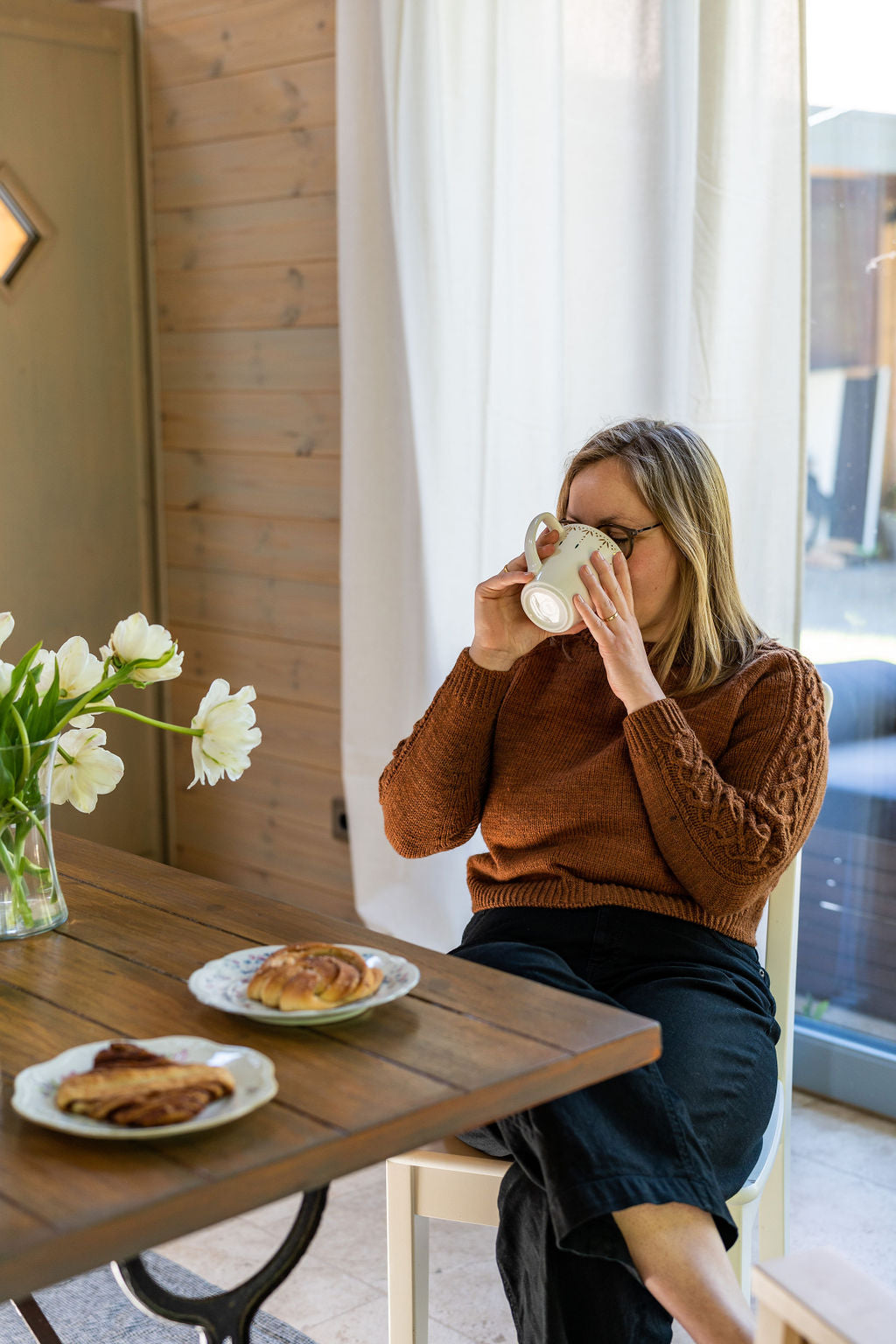
Our Podcast
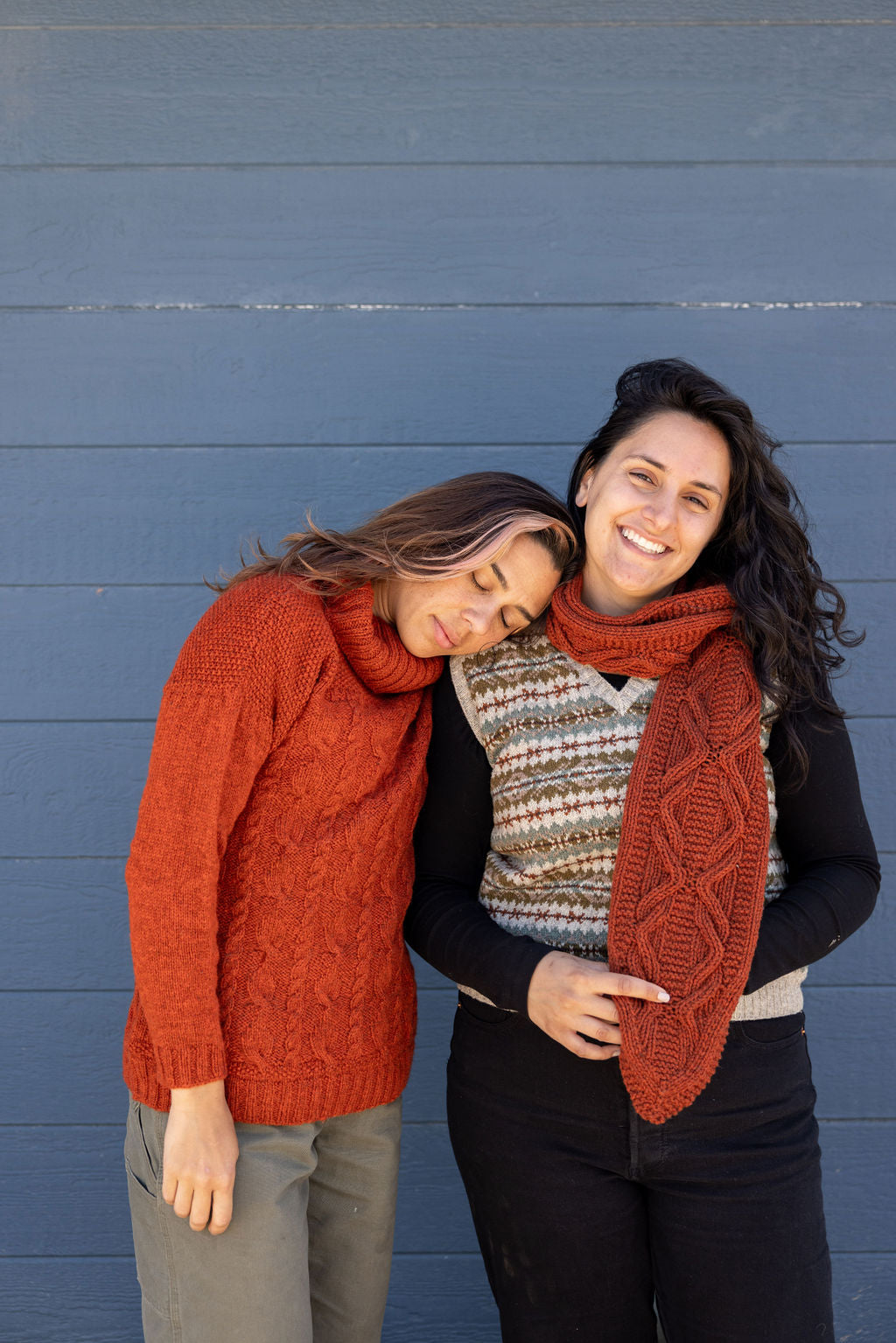
The Making Stories Collective
What Is Single-Flock Yarn?
May 13, 2020 3 min read
Single-flock yarns have been a particular passion of mine from the moment I held a skein of yarn that was gifted to me by my sister;

'It's from this little goat farm near to where we were staying, it originally started as a rescue farm, and now they've grown their flock. The wool comes from each of the goats, and this skein is from one called Minnie!'
Up until then, I'd only bought yarn based on what colour I liked, but all I know was with that story and the feel of Minnie's curly locks between my fingers, I was sold. I'd been transported, and it felt as if I were holding a little piece of the life they shared there on that goat farm.
I know, I'm a sucker for a good story and a goat with a super cute name, but it goes beyond that. When it comes to single-flock yarns, what you often find behind the finished product are truly passionate individuals. They are deeply committed to something beyond just selling yarn and are genuinely aware of the impact they have on the land and animals around them

But What Is It?
I know, I'm getting ahead of myself. What is single-flock yarn? It is yarn spun from the fleece of a single flock. This flock can belong to the yarn producer themselves, or they may work closely with shepherds and purchase the fleece directly from them. They then have the fleece processed and spun into yarn.
It is a slow and mindful process. Once one batch of yarn is gone, you can't go to the store to purchase more; you have to wait for the next shearing and start the process all over again. This brings obvious restrictions when it comes to selling yarn commercially; keeping enough supply for the demand is particularly tricky. But what comes with it is a deep connection to every facet of the yarn-making process.
Let's look at one of my favourite yarn producers; Louise from Southdown Yarns. I was lucky enough to be partnered with her for my first published pattern, Winterfold. Not only is her yarn stunning, but you can also get lost reading through all the information she shares on her website. Louise works with the shepherds of three different flocks of Southdown sheep, and something that I love is how she shares the slight differences in characteristics between the flocks. It's these details that, for me, make single-flock yarns so exciting!
'It seems to me that when you become interested in the provenance of a natural product you come to value every aspect of its creation and the contribution made by all those involved in its production. This is certainly true of all those who have supported us and purchased our wool. I love that our customers are interested in where our wool comes from and who shepherds the flocks from whence it hails.' - Louise (via South Down Yarns website)
From A Desire To Reduce Waste
While Louise has shown that producing single-flock yarns can work on a commercial level, sometimes it can come not from a desire to create, but to reduce waste. Hooligan Yarns came about as a way to use the fleeces of the small flock at Manor Farm Charitable Trust, a charity based in the UK that provides lifelong sanctuary for livestock in need. After being shorn, the fleeces were often burned or thrown away, so they decided to use them, creating high welfare, single sheep artisan yarn.' You get a card with the sheep who's fleece you are knitting! All the proceeds from sales go back into their trust, helping to take care of the animal's who's wool you have on your needles
Would you like to explore more single-flock yarns? Check out these fibre folk:
Do you have a favourite single-flock yarn you would like to share? Add it in the comments below!
Leave a comment
Comments will be approved before showing up.
Also in Blog
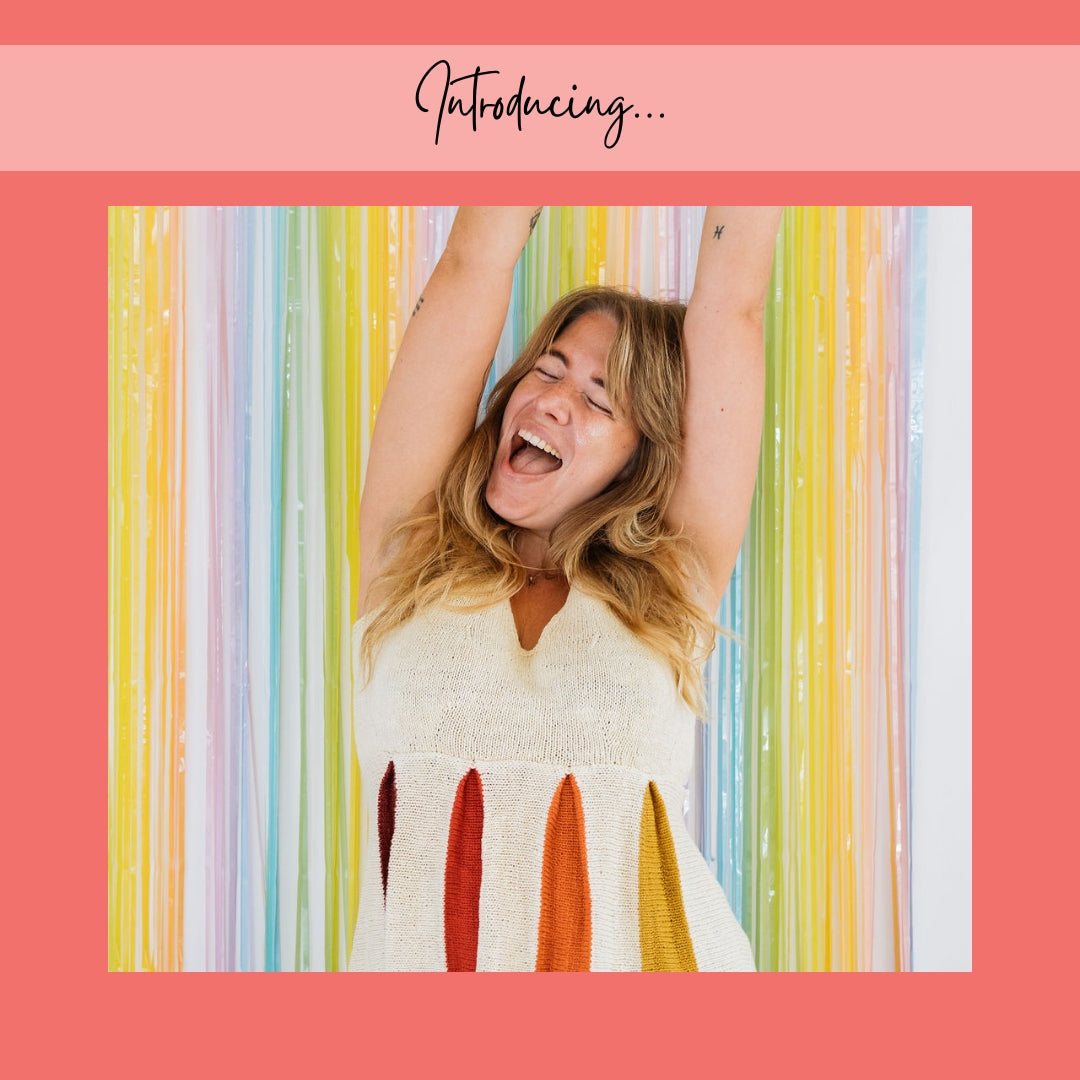
Issue 13 – Confetti & Rainbows | Official Pattern Preview
February 12, 2025 13 min read
Hi lovelies! The sun is out here in Berlin, and what better day to talk about one of the most joyful issues we've ever done than a brilliant sunny winter day – meet Issue 13, Confetti & Rainbows!
In Issue 13 – our Spring 2025 Issue – we want to play! Confetti and rainbows, unusually and unconventionally interpreted in 12 new knitwear designs – a journey through color, shapes, texture and materials.
Confetti made out of dried flowers, collected over months from bouquets and the road side. Sparkly rainbows, light reflecting. Gentle textures and shapes, echoing the different forms confetti can take. An unexpected rainbow around the corner, on a brick wall, painted in broad strokes.
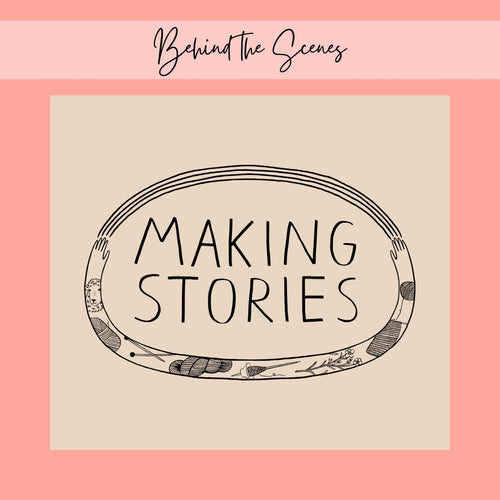
New Look, Same Heart: The Story Behind Our Delightful Rebrand
January 16, 2025 4 min read 1 Comment
Hi lovelies! I am back today with a wonderful behind-the-scenes interview with Caroline Frett, a super talented illustrator from Berlin, who is the heart and and hands behind the new look we've been sporting for a little while.
Caro also has a shop for her delightfully cheeky and (sometimes brutally) honest T-Shirts, postcards, and mugs. (I am particularly fond of this T-Shirt and this postcard!)
I am so excited Caro agreed to an interview to share her thoughts and work process, and what she especially loves about our rebrand!
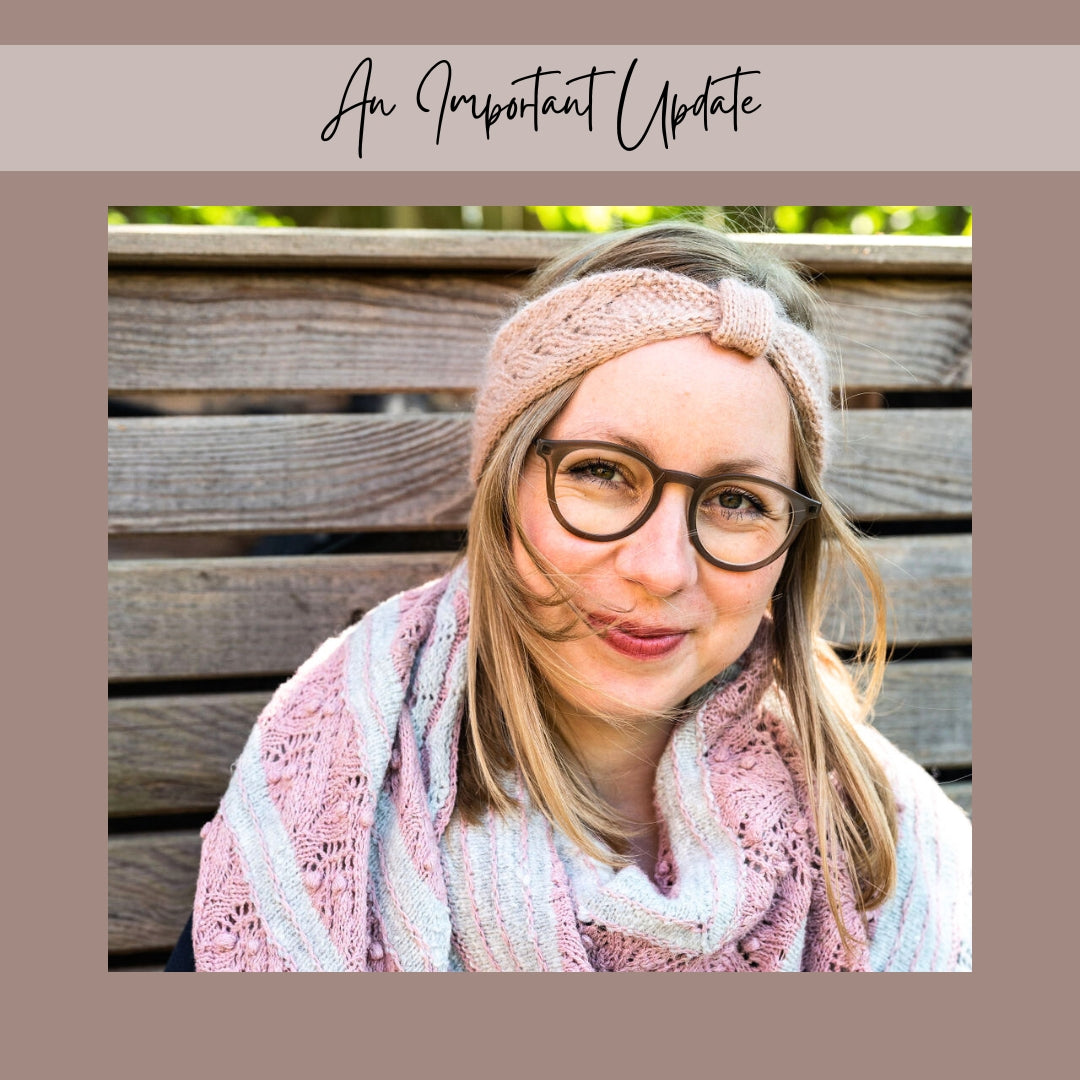
Thoughts on closing down a knitting magazine
November 19, 2024 12 min read 1 Comment
Who Is Making Stories?
We're a delightfully tiny team dedicated to all things sustainability in knitting. With our online shop filled with responsibly produced yarns, notions and patterns we're here to help you create a wardrobe filled with knits you'll love and wear for years to come.
Are you part of the flock yet?
Sign up to our weekly newsletter to get the latest yarn news and pattern inspiration!

